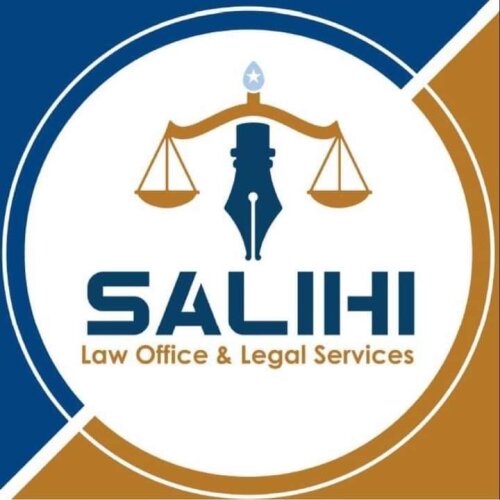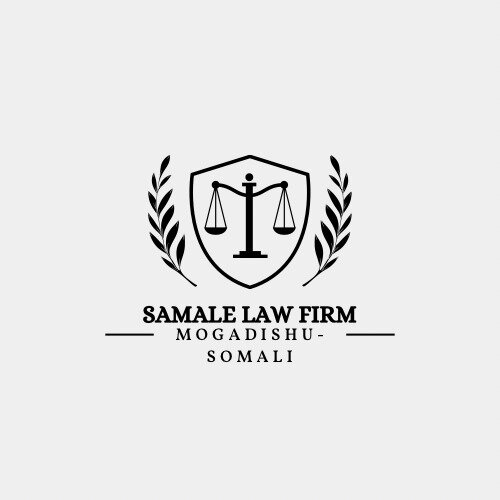Best Government Contract Lawyers in Somalia
Share your needs with us, get contacted by law firms.
Free. Takes 2 min.
Or refine your search by selecting a city:
List of the best lawyers in Somalia
About Government Contract Law in Somalia
Government contract law in Somalia involves the rules and regulations governing agreements between the Somali government and private entities. These contracts can cover a wide range of activities, including construction, delivery of goods, consultancy services, and more. The legal framework aims to ensure transparency, fairness, and accountability in the procurement process, encouraging competition and regulating public expenditure. Due to the evolving political landscape, government contracting in Somalia often navigates a complex legal environment requiring thorough understanding and compliance with both national and local laws.
Why You May Need a Lawyer
Navigating government contracts in Somalia can be challenging due to bureaucratic complexities and legal nuances. Situations where individuals or businesses might need legal assistance include:
- Drafting or reviewing contracts to ensure compliance with local and national laws.
- Resolving disputes over contract terms or performance issues.
- Assistance with bid protests or challenges to procurement decisions.
- Advice on regulatory compliance and risk management.
- Guidance on negotiations and enforcement of contract terms.
Local Laws Overview
Key aspects of local laws relevant to government contracts in Somalia include:
- The Public Procurement, Concessions and Disposal Act, which establishes the legal framework for government procurement.
- Regulations issued by the Somali Federal Government to promote transparency and efficiency in public procurement.
- Anti-corruption laws that aim to prevent fraud and promote integrity in the procurement process.
- International trade agreements that Somalia is a party to, impacting how government contracts are structured and enforced.
Frequently Asked Questions
What is a government contract?
A government contract is a legally binding agreement between a government entity and a private party to furnish products or services.
How are government contracts awarded in Somalia?
Contracts are awarded through competitive bidding processes, though direct negotiations may occur under certain circumstances as outlined by the procurement laws.
Who can bid for government contracts in Somalia?
Eligible firms that meet qualification criteria can bid, often requiring proof of capability, financial stability, and compliance with applicable legal standards.
What regulations govern government contracts in Somalia?
The Public Procurement, Concessions and Disposal Act primarily regulates the procedures, accompanied by specific regulatory guidelines issued by government authorities.
What should I do if I disagree with a procurement decision?
Submit a formal complaint to the relevant government authority, clearly stating the grounds for your disagreement and any supporting evidence.
Are there opportunities for international businesses in Somali government contracts?
Yes, international businesses can participate, but they must adhere to local laws and sometimes partner with local firms to qualify.
What are common risks in government contracting?
Risks include regulatory compliance issues, dispute resolution delays, payment uncertainties, and political instability impacting contract fulfillment.
Can government contracts in Somalia be modified once awarded?
Yes, contracts can be amended or modified, but such changes typically require mutual consent and compliance with contractual terms.
How can a lawyer assist with government contracting?
Lawyers offer guidance on compliance, structure agreements, facilitate negotiations, resolve disputes, and ensure protective measures are in place against potential risks.
What happens if a contract is breached?
The injured party can seek legal remedies through conflict resolution mechanisms or civil courts, depending on the contract terms.
Additional Resources
For more information and assistance, consider exploring the following resources:
- Somali Ministry of Planning, Investment and Economic Development.
- Public Procurement Authority in Somalia for guidance on procurement procedures.
- Anti-Corruption Commission resources for ethical compliance advice.
- Local and international legal consultancy firms with expertise in Somali government contracting.
Next Steps
If you require legal assistance in government contracting in Somalia, it's important to:
- Identify your specific legal needs and the issues you are facing.
- Seek professional legal consultation from firms with expertise in government contracts and Somali law.
- Prepare all relevant documents and information to provide your lawyer with a comprehensive understanding of your situation.
- Work closely with your legal advisor to ensure all actions comply with existing laws and best practices.
Lawzana helps you find the best lawyers and law firms in Somalia through a curated and pre-screened list of qualified legal professionals. Our platform offers rankings and detailed profiles of attorneys and law firms, allowing you to compare based on practice areas, including Government Contract, experience, and client feedback.
Each profile includes a description of the firm's areas of practice, client reviews, team members and partners, year of establishment, spoken languages, office locations, contact information, social media presence, and any published articles or resources. Most firms on our platform speak English and are experienced in both local and international legal matters.
Get a quote from top-rated law firms in Somalia — quickly, securely, and without unnecessary hassle.
Disclaimer:
The information provided on this page is for general informational purposes only and does not constitute legal advice. While we strive to ensure the accuracy and relevance of the content, legal information may change over time, and interpretations of the law can vary. You should always consult with a qualified legal professional for advice specific to your situation.
We disclaim all liability for actions taken or not taken based on the content of this page. If you believe any information is incorrect or outdated, please contact us, and we will review and update it where appropriate.
Browse government contract law firms by city in Somalia
Refine your search by selecting a city.










